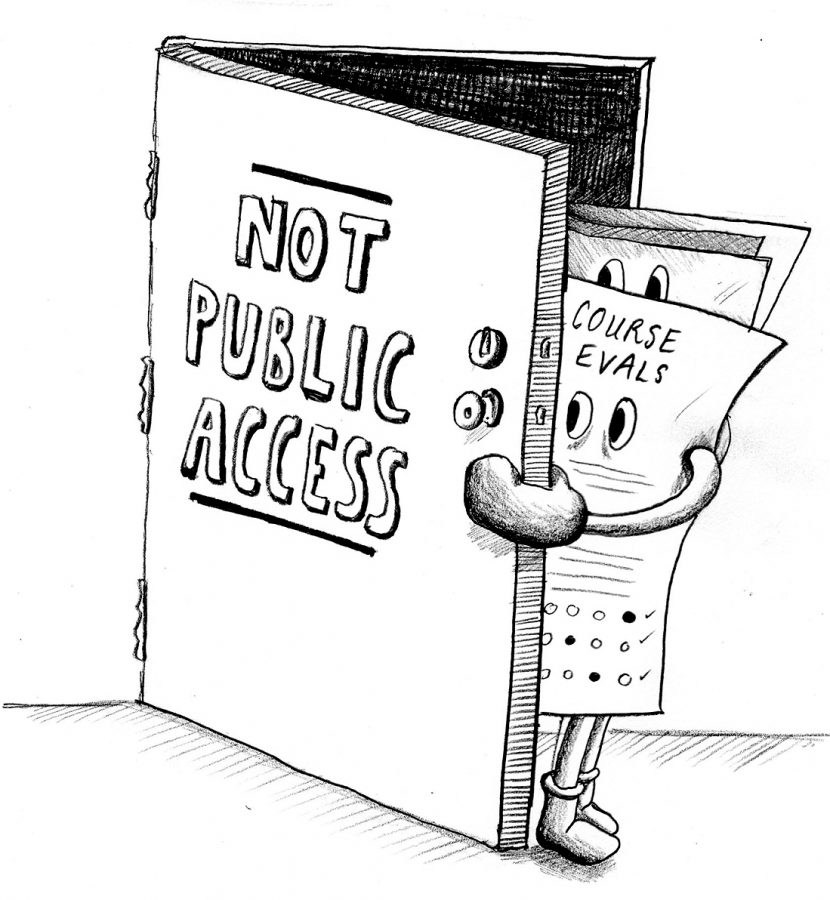Demand for public course evaluations
January 20, 2018
Why aren’t we putting course evaluations online?
It’s two days before classes start and my friend is still trying to get into the classes she wanted this semester.
Ratemyprofessor.com is open in one tab as she flips through deciding whose section to take a major requirement with. She then asks around our suite for suggestions on a good non-lab science to take. Sound familiar?
In the wake of an increasingly technological world an information asymmetry is occurring.
The end of each semester is marked with this asymmetry, as piles of paper course evaluations are distributed to students.
The problem lies in the fact that we never see their results, and don’t know if or how professors took constructive criticism into account.
Only the highly motivated few (displeased or enthralled) take to the web to express their opinions, leaving comments for the rest of us to use in next semester’s registration.
Students may appear to be bearing the brunt of the problem, however professors face costs as well.
For example, poor reputations perpetuated by the web or word of mouth can lead to aversion of great courses that should have easily filled up.
But without clear data on professor performance year to year, students will seek information from unreliable sources.
So why can’t the university save a few trees, streamline the process for both parties, and publicize up-to-date averages for those scantron multiple choice questions (privatizing the written comments section to avoid issues such as hate speech).
It’s already been executed successfully at institutions such as Columbia University and Boston University.
With a public audience, professors whose teaching methods don’t work well with students might be more motivated to change them.
Those who did improve from previous years would have the average data to show it, instead of the stain of old online reviews.
Students would take course evaluations more seriously, with the knowledge that their opinions are being broadcast to an audience beyond the department.
Performance is critical for both parties: students want quality in exchange for thousands of dollars of debt and professors want to advance and excel in their careers.
Publicizing at least some portion of evaluations would enable us to move away from untrustworthy sites like ratemyprofessor.com that were meeting a clear demand from students while demeaning professors in the process.
Therefore, it only makes sense to pursue improvement of this crucial measurement.








